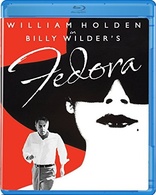Fedora Blu-ray Movie
HomeFedora Blu-ray Movie 
Olive Films | 1978 | 116 min | Rated PG | Oct 28, 2014Movie rating
6.7 | / 10 |
Blu-ray rating
| Users | 0.0 | |
| Reviewer | 3.5 | |
| Overall | 3.5 |
Overview
Fedora (1978)
Down-on-his-luck Hollywood producer Barry 'Dutch' Detweiler attempts to lure Fedora, a famous but reclusive film actress out of retirement.
Starring: William Holden, Marthe Keller, Hildegard Knef, José Ferrer, Frances SternhagenDirector: Billy Wilder
| Drama | 100% |
| Romance | 48% |
Specifications
Video
Video codec: MPEG-4 AVC
Video resolution: 1080p
Aspect ratio: 1.85:1
Original aspect ratio: 1.85:1
Audio
English: DTS-HD Master Audio Mono
Subtitles
None
Discs
25GB Blu-ray Disc
Single disc (1 BD)
Playback
Region A (B, C untested)
Review
Rating summary
| Movie | 3.5 | |
| Video | 4.5 | |
| Audio | 4.0 | |
| Extras | 0.0 | |
| Overall | 3.5 |
Fedora Blu-ray Movie Review
Queen of denial.
Reviewed by Jeffrey Kauffman October 13, 2014If as you watch Billy Wilder’s little seen 1978 film Fedora you’re struck with a strong case of déjà vu, it may be because you have indeed seen something similar if not identical before, especially if you’re a fan of Rod Serling’s immortal The Twilight Zone. Toward the end of the series’ long run, when many critics and even audience members had started to find the show somewhat passé, The Twilight Zone aired an episode called “Queen of the Nile,” which offered former MGM starlet (and future Hostess Twinkie shill woman) Ann Blyth as an apparently ageless film star named Pamela Morris, a relic from the silent era who still looks as youthful as she did decades ago. A crusty journalist shows up to interview the former star, at which point a series of revelations, including the real identity of an aged woman who is supposedly Morris’ mother, ensues. Now “Queen of the Nile” may not have had the delicious visceral impact of the best (typically earlier) episodes of Serling’s landmark show, but it had a certain creepiness factor that made it one of the more memorable outings of the series’ final season. Did actor Thomas Tryon perhaps see this episode and subliminally file away certain key plot elements until he morphed into a bestselling author a few years later with The Other, ultimately using them in his collection of short stories entitled Crowned Heads, from which Fedora was culled? Consider a few of the rather remarkable similarities: once again there’s an apparently ageless actress (the titular Fedora, evidently named after a hat), and once again there’s a curmudgeonly interloper (in this case a hopeful producer) attempting to convince Fedora to return to the screen, and exactly as in “Queen of the Nile” there’s also an elderly woman with a secret relationship to the reclusive star. While these are admittedly surface similarities, and Tryon’s approach does not dabble in the supernatural the way The Twilight Zone episode did, anyone who ever saw “Queen of the Nile” will certainly be a step ahead throughout much of Wilder’s swan song to a Hollywood of yore.
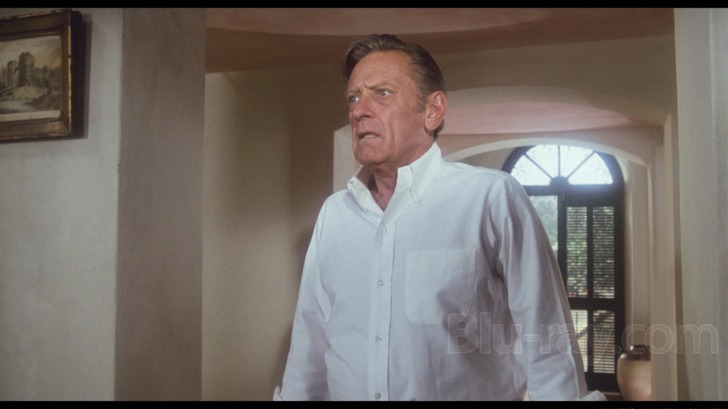
There’s actually another referent that most film fans will immediately recognize with regard to Fedora, namely Billy Wilder’s other film about a reclusive former star who is cloaked in mystery and whose story is narrated by William Holden, the classic Sunset Boulevard. If Holden’s Joe Gillis is initially a star struck character who finally becomes properly cynical about Hollywood, in Fedora Holden essays a character who might be thought of as a late middle aged version of Gillis (had he made it that long). Holden’s character is “independent producer” Barry “Dutch” Detweiler, a guy probably long past his prime (if he ever truly had one to begin with) who is dreaming of hitting it big by bringing the enigmatic Fedora (Marthe Keller) back to the screen. Much like Sunset Boulevard, this story is told via flashback after an opening prologue which details the death of a major character, followed by the voiceover of Detweiler as he details the "beginning" of the story.
And that flashback ends up simply being the first of several. Detweiler initially takes us back just a couple of weeks before the death detailed in the film’s opening to describe his arrival on the gorgeous Greek island of Corfu, in a perhaps desperate search for the mysterious Fedora, who is rumored to be living on a secluded island estate. Detweiler moves into a hotel run by a gregarious manager (Mario Adorf) who regales Detweiler with stories of having been in Zorba the Greek, just in case Detweiler might have a new role for him available. Wilder and his frequent co-writer I.A.L. Diamond can’t help skewering the tricks of the film trade here as the hotel manager initially thinks Detweiler is a studio big shot with an expense account, offering him a deluxe penthouse suite, until Detweiler confides he’s an “independent,” at which point the manager seamlessly segues to offering a budget room with a single bed.
With the help of the manager, Detweiler actually manages to get to the island where Fedora supposedly lives, despite having been rejected via telephone by Fedora’s no nonsense housekeeper Miss Balfour (Frances Sternhagen). On the island Detweiler spies a very odd interchange between Fedora and the elderly Countess Sobryanski (Hildegard Knef), where the two almost come to blows over Fedora’s choice of music. The two are kept from physically assaulting each other by Miss Balfour and Dr. Vando (Jose Ferrer), a plastic surgeon whose miraculous techniques have evidently aided Fedora in her ability to remain youthful.
Detweiler finally manages to meet Fedora at a shop on the island when she appears to be attempting to escape the clutches of Miss Balfour and an unctuous chauffeur named Kritos (Gottfried John). It’s at this point that the film indulges in yet another flashback, this time back to the late forties, a sequence which details the meeting of a much younger Detweiler (played now by recently scandalized Stephen Collins) and Fedora on the set of some big budget Hollywood extravaganza. Detweiler was the Second Assistant Director (a fancy name for what is basically a “grunt” position) on the film and was tasked with covering Fedora’s boobs in a nude bathing scene. Fedora was singularly upset when Detweiler had the temerity to yawn while placing palm fronds on her body, and she accuses him later of being gay, something he’s all too happy to disprove. (It’s a bit unfortunate that Collins is in this role, as the recent news about him unavoidably plays into Fedora’s characterization of Detweiler as a sexual predator of sorts.)
There’s a certain wistful quality to this flashback, which ends with the “current day” Detweiler coming to the conclusion that his life obviously never really amounted to much, while Fedora’s has evidently been charmed, both professionally and personally. He manages to finagle a private audience with the slimy Dr. Vando, but everyone around Fedora seems to be attempting to keep her not just from her once adoring public, but from any unwanted interlopers. While Fedora therefore plays out like something of a mystery, it actually has a melancholic subtext that seems to yearn for the glitz and glamor of a bygone age, even if that allure was purely an illusion to begin with.
Holden is exceptionally good as a washed up showbiz pro trying one last time to grasp that elusive brass ring. Also excellent are Ferrer, Sternhagen and Hildegard Knef as the elderly Countess who is of course harboring a pretty easy to guess secret. The unfortunate weak link here is Marthe Keller, an actress of obvious physical attractiveness who simply doesn’t have the enigmatically mesmerizing quality of a star like Garbo, on whom the character is obviously modeled. Her performance is something of a dead weight on the film, further exacerbated by her seemingly unavoidable overuse of her hands to fuss about with her hair and face in a number of scenes.
There’s no doubt that Fedora pales in comparison to Sunset Boulevard, but really can’t the same thing be said about virtually every other paean to a bygone era in the movie industry? And while the film is oddly structured, with too many “reveals” and flashbacks crowded into its closing moments, the film offers a nicely adept look at the hardscrabble reality lying just beneath the surface of a beautifully made up star.
Fedora Blu-ray Movie, Video Quality 
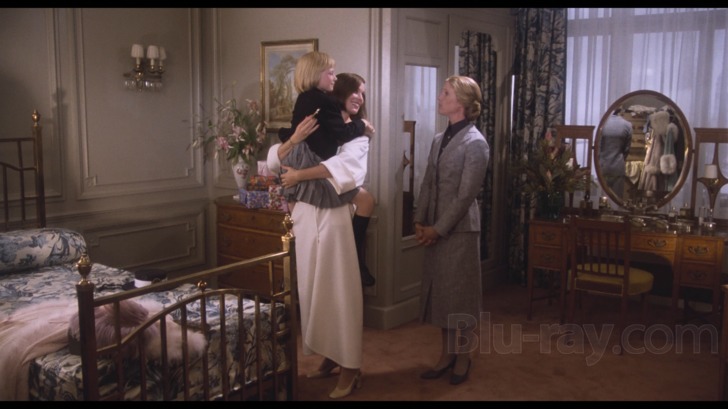
Fedora is presented on Blu-ray courtesy of Olive Films with an AVC encoded 1080p transfer in 1.85:1. According to information provided by Olive, this release was mastered in 2K from the original camera negative produced by Bavaria Media, in cooperation with CinePostproduction, and is therefore sourced identically to the French release reviewed by my colleague Dr. Svet Atanasov (whether this is the same actual master or encode, I'm not certain). This is overall a lovely high definition presentation, one with a wonderfully warm color space that makes Corfu pop beautifully. Detail is exceptional and shadow detail is also well above average. Colors are pleasing and accurate looking, especially the vivid blues of the water around the island. My one area of concern is slightly variable contrast, which seems just a bit pushed at times. You can notice it in the scene where Detweiler crosses in the little boat to Fedora's island for the first time, or much later in the film when Detweiler bursts into Fedora's mansion, a scene where Holden's white shirt comes very close to blooming. Otherwise, though, this is a top tier transfer and should easily please discriminating videophiles.
Fedora Blu-ray Movie, Audio Quality 
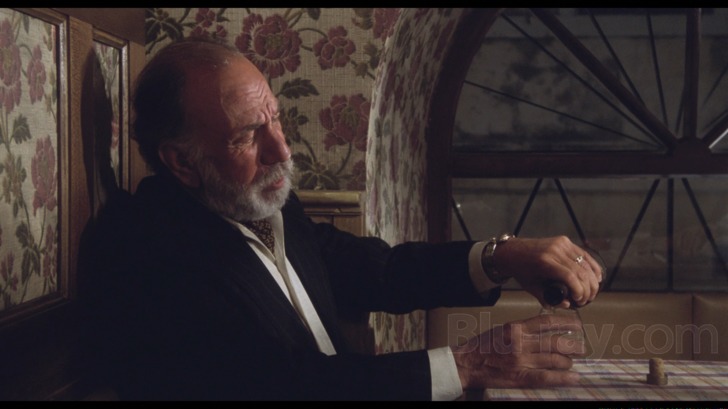
Fedora features a lossless DTS-HD Master Audio Mono track which capably supports this largely dialogue driven film. Holden's narration rings loud and clear, and more traditional dialogue scenes have no issues whatsoever. This film featured a reunion of Wilder with the legendary Miklos Rozsa, and Rozsa's uncharacteristic score (which may utilize some source Greek cues) sounds fine as well. There is no damage or any other problems to report on this track.
Fedora Blu-ray Movie, Special Features and Extras 
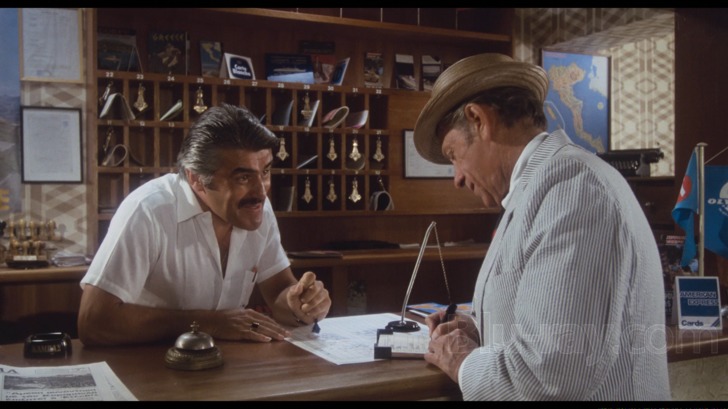
There are no supplements on this disc, a real shame given the excellent documentary on the French release.
Fedora Blu-ray Movie, Overall Score and Recommendation 
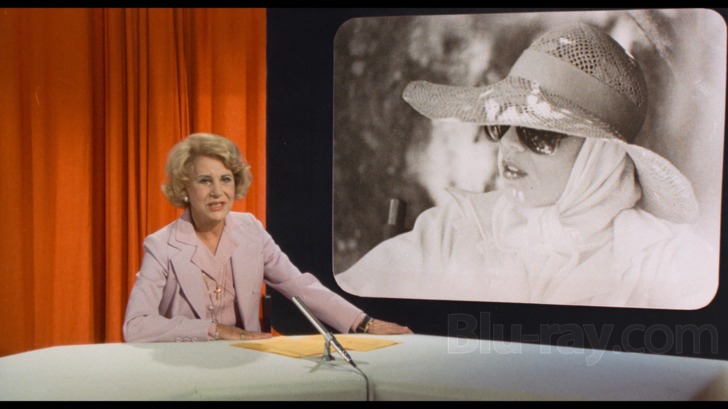
Fedora is admittedly a rather odd film, one which skirts awfully close to camp at times, usually courtesy of Keller's problematic performance. But for those willing to peer a bit beneath the surface, there's a rueful but nostalgic tenor here that seems to perfectly sum up where Wilder was at this point in his long life and career. Technical merits are very strong and Fedora comes Recommended.
Similar titles
Similar titles you might also like

Before Midnight
2013

Before Sunrise
1995

Before Sunset
2004

Only Lovers Left Alive
2013

Orlando
1992

Breezy
1973

To the Wonder
2012

The Devil Is a Woman
1935

Her Smell
2018

Désirée
Limited Edition to 3000 - SOLD OUT
1954

Diana
2013

Amour
2012

Revolutionary Road
2008

Reflections in a Golden Eye
Warner Archive Collection
1967

The Fountain
2006

Weekend
2011

The Immortal Story
Une histoire immortelle
1968

Brief Encounter
1945

Ain't Them Bodies Saints
2013

A Woman of Paris: A Drama of Fate
1923
